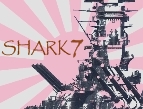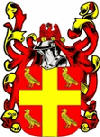Big B
Posts: 4870
Joined: 6/1/2005
From: Old Los Angeles pre-1960
Status: offline

|
KAIBOKAN C and D
October 8, 2010 0 Comments
Link
It does appear they may be overpowered in the game, historical win/loss rate vs submarines shown below:
13 Escorts sunk by Submarines vs 4 Submarines sunk by these same Escorts:
Ships lost
CD-1, commissioned on February 19, 1944. CD-1 was sunk by B-25 bombers on April 6, 1945.
CD-3, commissioned on February 29, 1944. CD-3 was sunk by TF 38 carrier aircraft on January 9, 1945 at 27-10N, 121-45E.
CD-5, commissioned on March 19, 1944. CD-5 was sunk by carrier aircraft on September 9, being set afire and later blowing up and sinking at 15-30N, 119-50E.
CD-7, commissioned on March 10, 1944. CD-7 was torpedoed and sunk by USS Ray on November 14, 1944 at 17-46N, 117-57E.
CD-9, commissioned on March 28, 1944. CD-9 was torpedoed and sunk by USS Gato on January 12, 1945 at 32-43N, 125-37E.
CD-11, commissioned on April 5, 1944. CD-11 was damaged and had to be beached by B-25 bombers on November 10, 1944 at 10-51N, 124-32E.
CD-13, commissioned on April 26, 1944. CD-13 was torpedoed and sunk by USS Torsk on August 14, 1945, the day before the end of the war.
CD-15, commissioned on May 1, 1944. CD-15 was torpedoed and sunk by USS Raton on June 6, 1944.
CD-17, commissioned on May 7, 1944. CD-17 was torpedoed and damaged by USS Tilefish on July 18, 1944. CD-17 was sunk by carrier aircraft on January 12, 1945.
CD-19, commissioned on May 20, 1944. CD-19 was sunk by TF 38 carrier aircraft on January 12, 1945.
CD-21, commissioned on August 18, 1944. CD-21 was torpedoed and sunk by USS Seahorse on October 6, 1944.
CD-23, commissioned on October 29, 1944. CD-23 was sunk by carrier aircraft on January 12, 1945.
CD-25, commissioned on July 30, 1944. CD-25 was torpedoed and sunk by USS Springer on October 6, 1944.
CD-31, commissioned on October 13, 1944. CD-31 was torpedoed and sunk by USS Tirante on April 14, 1945.
CD-33, commissioned on October 13, 1944. CD-33 was sunk by carrier aircraft on March 28, 1945.
CD-35, commissioned on November 21, 1944. CD-35 was sunk by carrier aircraft on January 12, 1945.
CD-39, commissioned on November 9, 1944. CD-35 was sunk by B-25 "Mitchells" on August 7, 1945, the day the atomic bomb was dropped on Hiroshima.
CD-41, commissioned on November 26, 1944. CD-41 was torpedoed and sunk by USS Sea Owl on July 9, 1945.
CD-43, commissioned on September 10, 1944. CD-43 was sunk by carrier aircraft on January 12, 1945.
CD-47, commissioned on November 2, 1944. CD-47 was damaged by aircraft on three occasions, on January 29, February 15, and July 30, 1945. She was torpedoed and sunk by USS Torsk on August 14, 1945, the day before the end of the war.
CD-51, commissioned on October 29, 1944. She was sunk by TF 38 aircraft on January 12, 1945.
CD-53, completed on November 28, 1944. On February 7, 1945 She was torpedoed and sunk by USS Bergall.
CD-65, completed on February 13, 1945. She was sunk on July 14, 1945 by TF 38 carrier aircraft.
CD-69, completed on December 20, 1944. She was sunk on March 16, 1945 by B-25s.
CD-73, completed on April 5, 1945. On April 16, 1945, just eleven days after completion, she was torpedoed and sunk by USS Sunfish.
CD-75 , completed on April 12, 1945. She survived the war, but was torpedoed and damaged by Soviet submarine L12 on August 22, 1945. She was scuttled the next day.
CD-213, completed on February 12, 1945. On August 18, 1945, after the war ended, she sank after striking a mine.
CD-219, completed on January 25, 1945. She was sunk by TF 38 carrier aircraft on July 15, 1945 off Hakodate.
Successes
USS Growler was sunk on November 8, 1944 by CD-19 with Chiburi and destroyer Shigure.
USS Trigger was sunk on March 28, 1945 by CD-33 and CD-59 with Mikura.
USS Bonefish was sunk on June 19, 1945 by C Types CD-63, CD-75 and CD-207 with Okinawa and CD-158.
USS Salmon was rendered unfit for further service by damage from CD-33 and CD-29 with CD-22 on October 30, 1944.
The D Type class escort ships were a class of ships in the service of the Imperial Japanese Navy during World War II. The Japanese called them "D Type" coast defence ships, and they were the sixth class of Kaibokan (Kai = sea, ocean, Bo = defence, Kan = ship), a name used to denote a multi-purpose vessel.
The D Type, like the Ukuru-class and Mikura-class, were dedicated to the anti-aircraft and anti-submarine role.
_____________________________
|
 Printable Version
Printable Version










 ). Not to say you shouldn't try it your way, but you may find you have only gotten part way there in getting those pesky Es into line. Something to keep your eye on, anyway. Give it a shot, let us know how it works out.
). Not to say you shouldn't try it your way, but you may find you have only gotten part way there in getting those pesky Es into line. Something to keep your eye on, anyway. Give it a shot, let us know how it works out.







 New Messages
New Messages No New Messages
No New Messages Hot Topic w/ New Messages
Hot Topic w/ New Messages Hot Topic w/o New Messages
Hot Topic w/o New Messages Locked w/ New Messages
Locked w/ New Messages Locked w/o New Messages
Locked w/o New Messages Post New Thread
Post New Thread